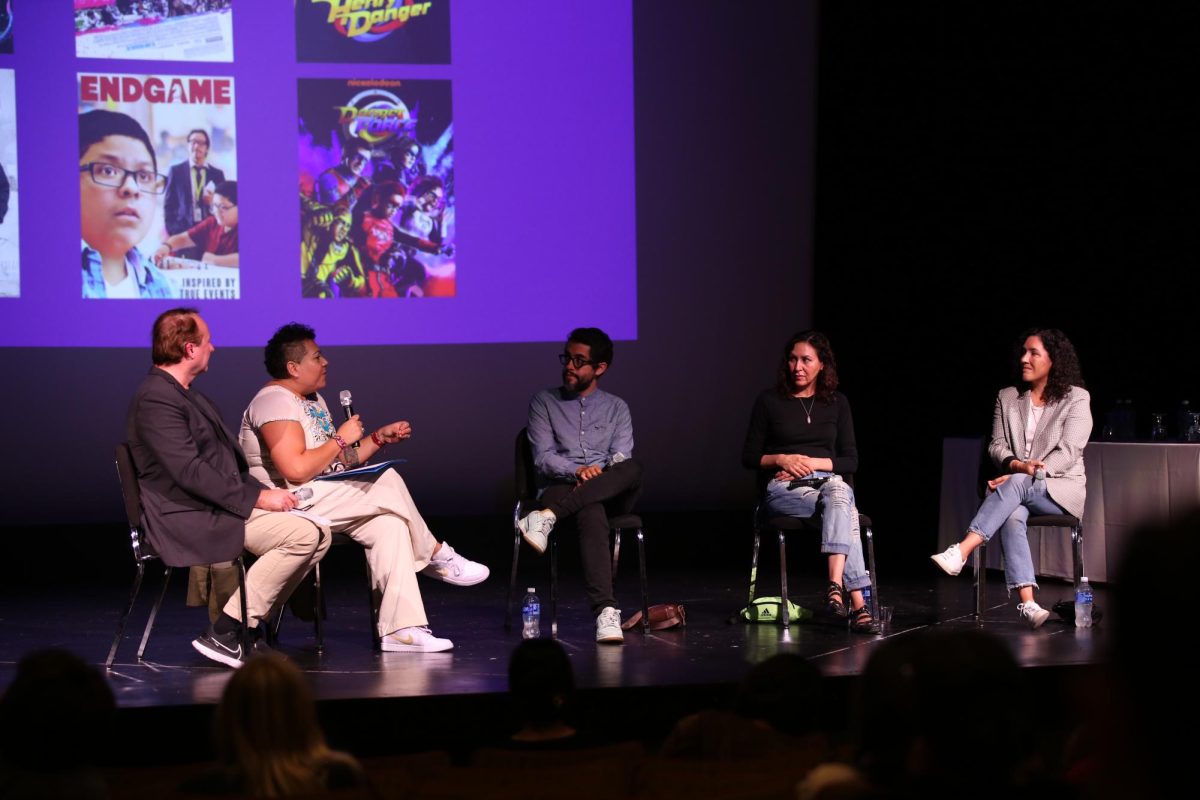To celebrate National Hispanic Heritage Month, the film and television department at California Lutheran University held a summit and panel with speakers who have a Hispanic background working in the entertainment industry. The panelists discussed what they have faced as people of Hispanic heritage in the film industry, offering stories and advice.
The Latinx Film and TV Summit and Panel was held in the Preus-Brandt Forum on Tuesday, Sept. 19, and was moderated by John Fitch III, associate professor and director of the Cal Lutheran film and television program, and Lorena Muñoz, associate professor and program director for the ethnic and race studies program.
The panel featured academy-award-nominated Directors Carlos Lopéz Estrada, Evelyn Belasco, and Carmen Marrón as guest speakers.
According to the event’s website, Estrada directed “Raya and The Last Dragon”, “Blindspotting”, and “Summertime.” Belasco is director of Nickelodeon shows “Henry Danger”, “Danger Force”, and “Erin & Aaron.” Marrón is the director of “Go for It!” and “Endgame”, and has also directed some episodes of “Queen Sugar.”
“Our hope is that we continue to grow and welcome students from all types of backgrounds and experiences and that we can provide an enriching education for them that prepares them to succeed in this ever-changing industry,” Fitch said.
Fitch said the event gives students the opportunity “to see and experience people with similar backgrounds as them.” He also said events like this can help students “see that they can succeed despite the many obstacles that are on the way,” as it gives them hope and someone to look up to.
“Even if there hasn’t always been diversity and inclusion, we have always been contributors,” Belasco said. “Latinos have always been a rich source of creativity.”
López said “People like ourselves are starting to enter these positions,” and that the situation has changed for the better, as people with Hispanic backgrounds have joined the film industry.
According to Marrón, the changes in the film industry began to be more visible after the #MeToo movement, as it inspired women to speak out about their experiences in the industry.
Another topic that came up during the panel discussion was the ongoing Writers Guild of America strike, and the speakers said it is an issue affecting everyone in the industry.
“Even A-listers think that they are getting a great deal and then they find out what everyone else is making,” Marrón said.
On Sunday, Sept. 24, the WGA and Alliance of Motion Pictures and Television Producers reached a “tentative agreement” to end the strike after almost five months.
Diversity in the industry can start with education, and Fitch said events like this on campus are important.
“I think it is really important to recognize and celebrate the diversity that has been achieved in the motion picture and television industries, and to advocate and explore more opportunities for growth among minority populations in the industry,” Fitch said.
Fitch said he hopes that students from all backgrounds know that they are welcome here and that they have a place in the film and television department.













